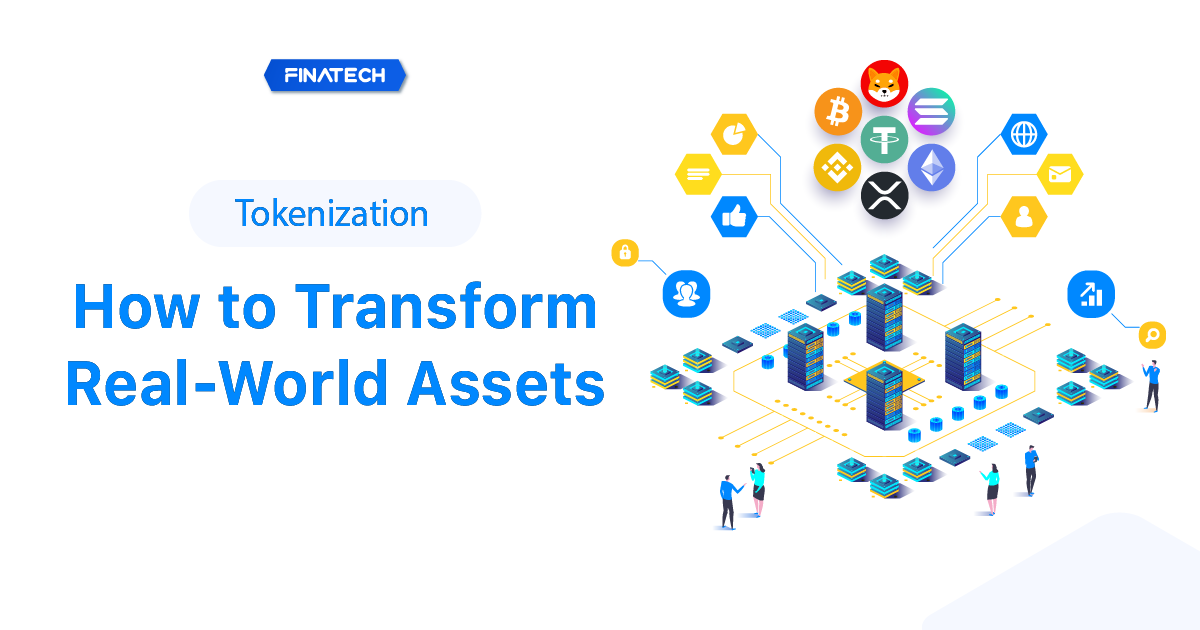Tokenization: How to Transform Real-World Assets
Blockchain Web3 Saturday, July 29, 2023
Blockchain Web3 Saturday, July 29, 2023

Tokenization is the process of converting the rights to an asset into a digital token that can be traded on a blockchain network. The token represents ownership or rights to a portion of the underlying asset, such as a physical property, a stock, or a commodity.
The token is stored on a decentralized network, such as Ethereum, where it can be bought, sold, or traded in a secure and transparent way.
Firstly, tokenization enables fractional ownership, allowing investors to buy and sell small fractions of an asset. This increases the accessibility of investments to a wider pool of investors, breaking down the traditional barriers to entry in real estate, fine art, and other high-value assets.
Secondly, tokenization provides improved liquidity. Traditional ownership models of assets can be illiquid, with long waiting periods before finding buyers or sellers. Tokenization allows for instant trading on blockchain networks, improving liquidity and allowing to buy and sell the asset with ease.
Thirdly, tokenization offers greater transparency in transactions. With blockchain technology, all transactions are recorded on a public ledger, allowing for greater transparency and reducing the risk of fraud. Tokenization also reduces the need for intermediaries, reducing transaction costs and improving efficiency.
The process of tokenization involves several steps.
Firstly, identify and evaluate the asset to determine its value and ownership rights.
Secondly, convert the asset into a digital format, such as a smart contract, that defines the ownership rights and other terms of the asset.
Thirdly, issue the asset as a digital token on a blockchain network, such as Ethereum. The token is made available for trading on decentralized exchanges, allowing investors to buy and sell the token in a secure and transparent way.
While tokenization offers many benefits, there are also several challenges to overcome. Firstly, regulatory challenges must be addressed. Tokenization of assets may fall under securities laws, and different jurisdictions may have different regulations.
Secondly, the process of tokenization requires expertise in blockchain development, smart contract creation, and cybersecurity. Companies must work with experienced IT services companies that specialize in blockchain development and have deep expertise in the technical aspects.
Lastly, there is still a lack of widespread adoption and understanding in the market. While there is growing interest, there is still a need for greater education and awareness of its benefits.
Finatech is a leading IT services company specializing in blockchain development and Web3 outsourcing. With over 13 years of experience in the crypto industry, Finatech has the expertise and experience needed to help companies navigate the challenges.
From smart contract creation to decentralized exchange integration, Finatech provides end-to-end services for tokenization and NFT services. With a focus on security and transparency, Finatech helps companies unlock the potential of tokenization and realize the benefits of blockchain technology.
Tokenization offers many benefits to investors and asset owners, including fractional ownership, improved liquidity, and greater transparency in transactions. While there are challenges to overcome, including regulatory hurdles and technical expertise, companies can partner with experienced IT services